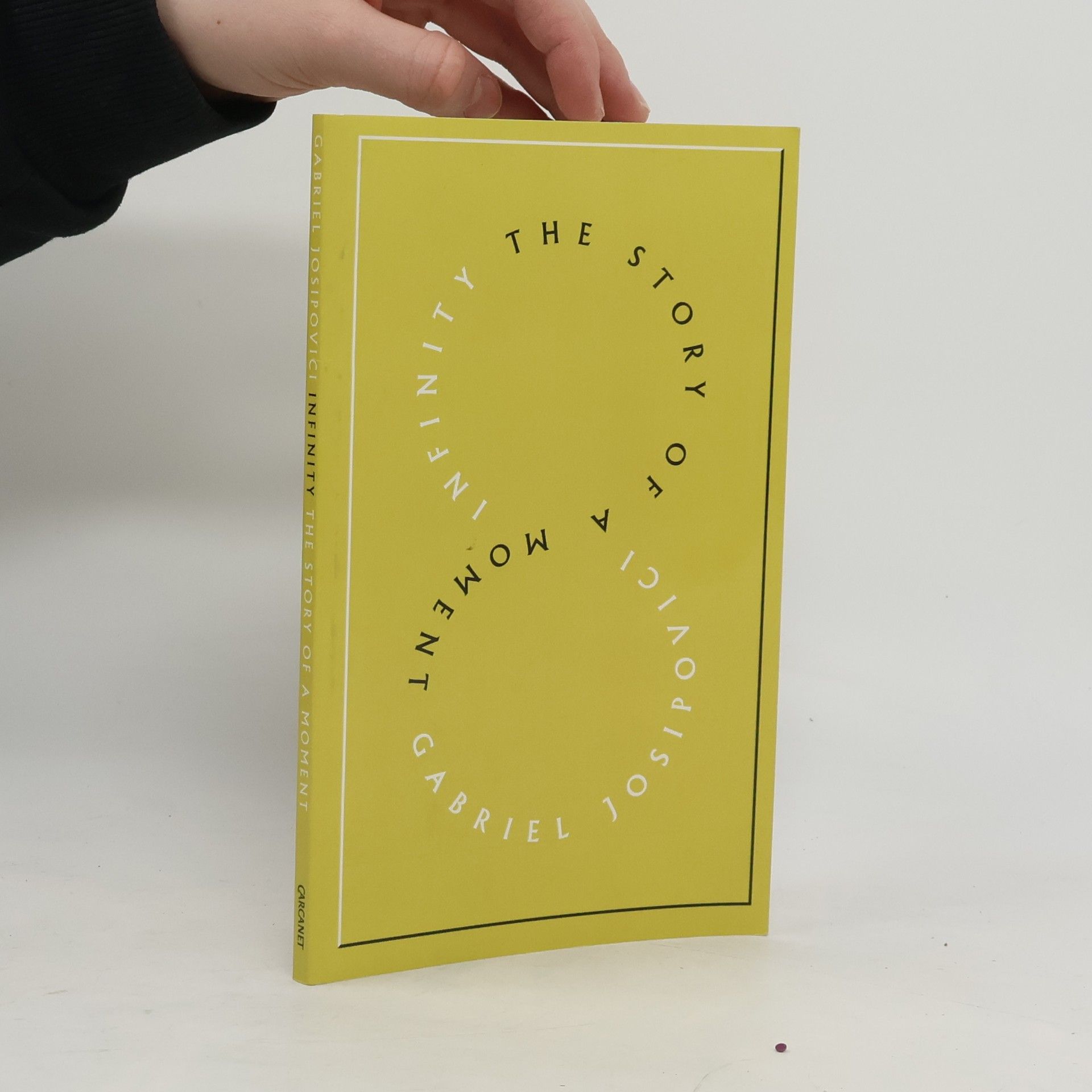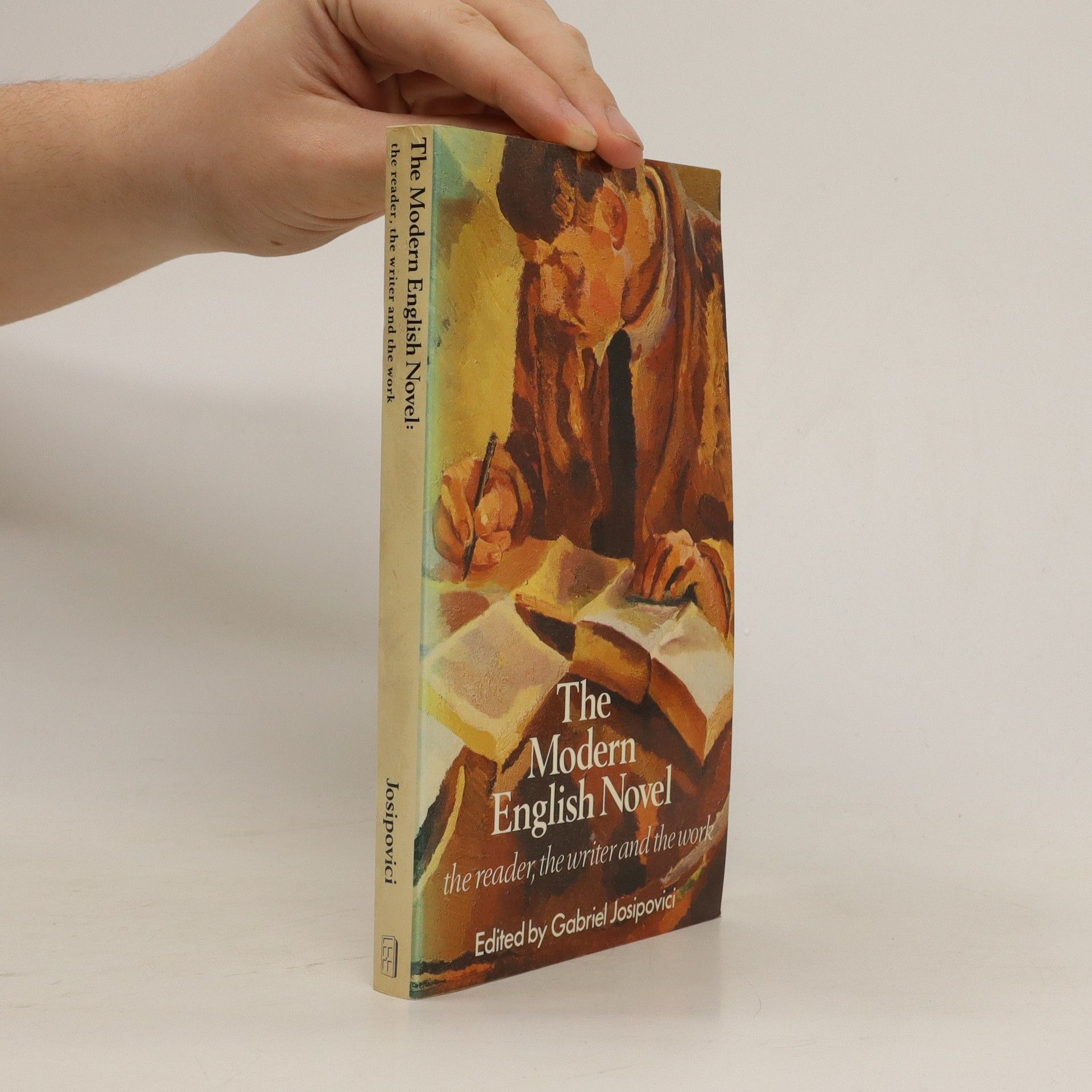Forgetting
- 160pages
- 6 heures de lecture
This personal book explores both the public and the private dimensions of forgetting and its scary Siamese twin, remembering.
Gabriel Josipovici explore les complexités de l'expérience humaine, en examinant la recherche de sens dans le monde moderne. Son écriture se caractérise par un examen approfondi de la psychologie des personnages et un style nuancé qui révèle de subtiles couches de signification. L'auteur se concentre sur des thèmes universels tels que la mémoire, l'identité et les relations, les explorant avec une perspicacité pénétrante. Son œuvre abondante l'a établi comme une voix significative de la littérature britannique contemporaine.






This personal book explores both the public and the private dimensions of forgetting and its scary Siamese twin, remembering.
An autobiography emerges from this Covid diary by the celebrated novelist, short story writer, critic and playwright.
Exploring the richness of Biblical narratives reveals their depth beyond childhood interpretations. These stories emerge from a sophisticated literary tradition, articulated in expressive Hebrew and interwoven with diverse writings. The book encourages readers to engage with the narratives using adult perspectives, uncovering often overlooked dimensions, wit, and humor. By doing so, it highlights the universal appeal and contemporary relevance of these tales, inviting a fresh appreciation for their complexity and significance.
This is Gabriel Josipovici's most melodramatic and enigmatic fiction to date, as though one of Magritte's paintings had come to life to the rhythms of a Bach partita.
In the course of a single extensive interview, this novel recounts the colorful life of a wealthy, eccentric Italian composer through multiple layers of unreality. As Massimo recalls what his master, Tancredo Pavone, told him about his life, he often repeats Pavone’s outrageous opinions on everything from the current state of the world to the inner life of each musical note. Eventually, it becomes comically clear that not only does Pavone not always distinguish between memory and imagination, but also that Massimo does not always understand what it is he is repeating. A moving portrait of a close bond between two people from utterly different social spheres, this narrative is an insightful look into the world of a composer and the process of artistic creation.
„Fehler machen“ erzählt und erforscht die Ironie der Geschichte zweier Beziehungen. In der Nachfolge von “Cosi fan tutte”wechseln Paare – nicht nur einmal – die Partner und geraten immer tiefer in einen Rosenkrieg mit allen Schikanen. Dies ist die mit fledermausfeinen Ohren eingefangene Partitur aller sich endlos qualvoll im Kreise windender Beziehungs-Trennungs-Gespräche. Nur wenn alles lange genug vorbei und weit genug weg ist, wirds eher wieder was zum Lachen. Denn Paare begreifen nur langsam und brauchen einigen Aufwand an Argumenten, Entlarvungen und Durchblicken, daß es in der Liebe keine Fehler gibt, nur falsche Entscheidungen. Es kommt darauf an, die wahre Wahlverwandtschaft zu finden und ihr zu folgen. Auch nach einigen Irrwegen. Möglichst mit glücklichem Ausgang. Wenigstens vorläufig. Wie hier. Fehler machen besteht aus der allmählichen Verfertigung von Glück, das nicht gleich als solches empfunden wird.
Nach dem Tod seiner ersten Frau zieht er von London nach Paris und später mit seiner zweiten Frau nach Wales. Er lebt zurückgezogen als Übersetzer und Liebhaber von Musik und Literatur. Sein Leben ist geprägt von Gewohnheiten und Routinen, doch es gibt ein verborgenes Vorleben, das er nicht erinnern will. Gabriel Josipovici, bekannt als „englischer Thomas Bernhard“, erzählt unterhaltsam von diesem klugen Mann.
Zwei Männer laufen durch Londons Parks, an Londons Wasserläufen entlang. Einer von beiden, Autor und Universitätsdozent, redet die ganze Zeit. Er erzählt - unter anderem von dem Buch Moo Pak, an dem er gerade schreibt. Vom ersten Satz an fesselt dieser Endlostext über Gott und die Welt. Jack Toledano, informiert, hoch gebildet, mit britischem Commonsense, unterhält mit erstaunlichen Wertungen und scharfen Urteilen: über das Werk von Kollegen oder die Abwege der Politik. Ein Alleinredner, aber auch ein anregender Begleiter, einer mit dem ins Gespräch zu kommen wäre. Toledano ist sephardischer Jude, er stammt aus Ägypten. Eine Perspektive »halb von außen« prägt die Art des Befremdetseins, macht seine Zivilisationskritik ergiebig. »Vor allem ist es Weisheitsliteratur, eine Mixtur erzählender Genres – sogar Biographie und Literaturkitik kommen ins Spiel… Moo Pak ist hoch intelligent und bisweilen sehr witzig…« Frank Kermode »Moo Pak erinnerte mich an den Reichtum und den Eigensinn von Robert Burtons Anatomie der Melancholie, ein Werk, das ich immer bei mir habe. Gabriel Josipovicis hervorragender und anregender Roman wird sich dazugesellen.« Alan Sillitoe